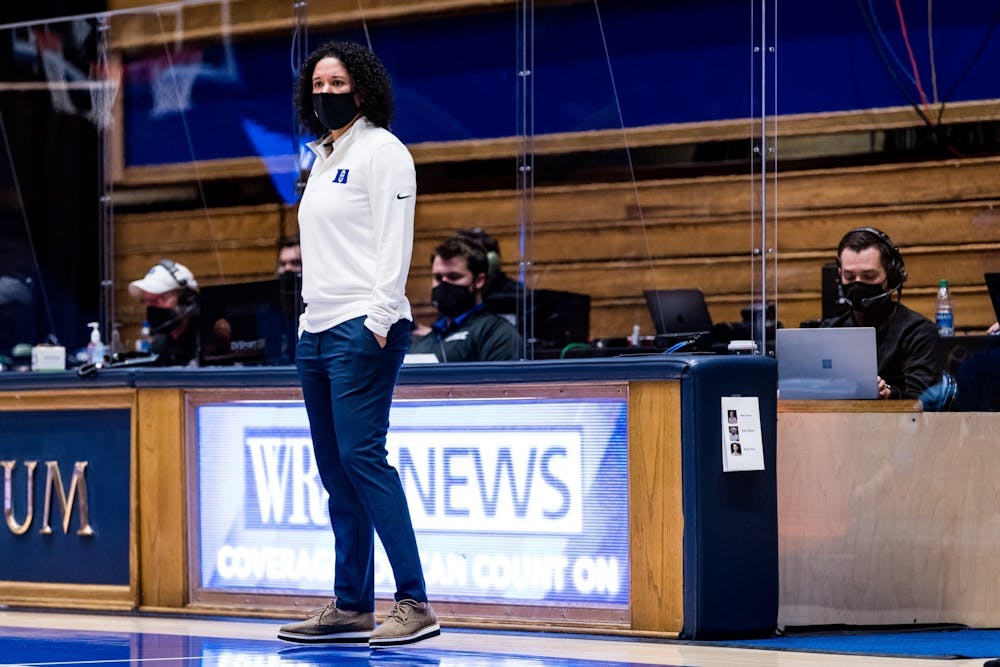A stacked class of newcomers mark head coach Kara Lawson's first major accomplishment at Duke. Heading into the 2021-22 season, we take a look at film from Duke women's basketball's newest players. Previously, we analyzed Lexi Gordon, Lee Volker, Amaya Finklea-Guity, Nyah Green, Celeste Taylor, Imani Lewis and Jordyn Oliver. Next up, we look at Elizabeth Balogun:
Elizabeth Balogun is a glue gal. Not a star, not a scrub, not a role player with a clear skillset. She’s a glue gal, someone to insert as the final piece into a lineup already talented but a bit disparate. That makes her perfect for these Blue Devils. With the roster filled by players with established roles, from Taylor’s slashing and on-ball defense to Miela Goodchild’s 3-&-D to Lewis’ midrange game and rebounding, Balogun should be the catalyst that allows them to meld.
The Chattanooga, Tenn. native played her freshman season at Georgia Tech and comes to Duke after two seasons at Louisville where she helped her team win back-to-back ACC regular season championships, not to mention her place on the Nigeria women's national basketball team at the 2020 Tokyo Olympics. Though she brings an impressive resume with her to Durham, Balogun's role is more about support than star-power.
I wrote in April after she transferred how she knew “her way around spot-up shooting, cuts, pick-and-roll handling and screening" and was "a bit of a ‘jack of all trades, master of none’ on offense.” Balogun doesn’t always need the ball in her hands to be effective, nor does she need to jack up poor shots to warm up. She usually picks spots well, demands just enough defensive attention to help open the floor and can attack mismatches when presented with them.
On defense, Balogun glues the team together just as well. Her measurables should be excellent, with apparent speed, length and movement that allows her to contest both as the primary and secondary defender while still recovering well. Her activity in help defense last year made up for Louisville point guard Hailey Van Lith and wing Kianna Smith’s struggles to contain dribble penetration and center Olivia Cochran’s relative weakness on defense. The last clip in the below video shows Cochran losing her assignment by erroneously switching, forcing Balogun in a late fly-out attempt to contest the three-pointer. Playing with smart defenders at Duke should avoid this specific situation, but it nonetheless shows Balogun's defensive prowess.
Balogun doesn’t have the most natural feel or instinctive basketball IQ of the Blue Devils, but those limits should be masked both by playing in a more professional style in Durham and by playing with more consistently good lineups. Ultimately, Balogun can be the reliable missing link that makes an already talented team jell.
Get The Chronicle straight to your inbox
Signup for our weekly newsletter. Cancel at any time.

